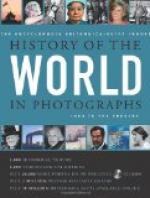Lapidaires francais); Frere Angier de Ste.
Frideswide, Dialogues, 29th of November 1212
(Rom. xii. 145-208, and xxix.; M.K. Pope,
Etude sur la langue de Frere Angier, Paris,
1903); Li dialoge Gregoire le pape, ed. by
Foerster, 1876; Petit Plet, by Chardri, c.
1216 (Koch, Altfr Bibliothek. i., and Mussafia,
Z.f.r.P. iii. 591); Petite philosophie,
c. 1225 (Rom. xv. 356; xxix. 72); Histoire
de Marie et de Jesus (Rom. xvi. 248-262); Poeme
sur l’Ancien Testament (Not. et Extr.
xxxiv. 1, 210; Soc. Anc. Textes,
1889, 73-74); Le Corset and Le Miroir,
by Robert de Gretham (Rom. vii. 345; xv. 296);
Lumiere as Lais, by Pierre de Peckham, c.
1250 (Rom. xv. 287); an Anglo-Norman redaction
of Image du monde, c. 1250 (Rom. xxi.
481); two Anglo-Norman versions of Quatre soeurs
(Justice, Truth, Peace, Mercy), 13th century (ed.
by Fr. Michel, Psautier d’Oxford, pp.
364-368, Bulletin Soc. Anc. Textes,
1886, 57, Romania, xv. 352); another Comput
by Rauef de Lenham, 1256 (P. Meyer, Archives
des missions, 2nd series iv. 154 and 160-164;
Rom. xv. 285); Le chastel d’amors,
by Robert Grosseteste or Greathead, bishop of Lincoln
([+] 1253) [ed. by Cooke, Carmina Anglo-Normannica,
1852, Caxton Society]; Poeme sur l’amour
de Dieu et sur la haine du peche, 13th century,
second part (Rom. xxix. 5); Le mariage des
neuf filles du diable (Rom. xxix. 54);
Ditie d’ Urbain, attributed without any
foundation to Henry I. (P. Meyer, Bulletin
Soc. Anc. Textes, 1880, p. 73 and Romania
xxxii, 68); Dialogue de l’eveque Saint Julien
et son disciple (Rom. xxix. 21); Poeme
sur l’antichrist et le jugement dernier,
by Henri d’Arci (Rom. xxix. 78; Not.
et. Extr. 35, i. 137). Wilham de Waddington
produced at the end of the 13th century his Manuel
des peches, which was adapted in England by Robert
of Brunne in his Handlying Sinne (1303) [Hist.
lit. xxviii. 179-207; Rom. xxix. 5, 47-53];
see Furnivall,_Robert of Brunne’s Handlying
Synne_ (Roxb. Club, 1862); in the 14th century
we find Nicole Bozon’s Contes moralises
(see above); Traite de naturesse (Rom.
xiii. 508); Sermons in verse (P. Meyer,
op. cit. xlv.); Proverbes de bon enseignement
(op. cit. xlvi.). We have also a few handbooks
on the teaching of French. Gautier de Biblesworth
wrote such a treatise a Madame Dyonise de Mountechensi
pur aprise de langage (Wright, A Volume of
Vocabularies; P. Meyer, Rec. d’anc. textes,
p. 360 and Romania xxxii, 22); Orthographia
gallica (Sturzinger, Altfr. Bibl. 1884);
La maniere de language, written in 1396 (P.
Meyer, Rev. crit. d’hist. et de litt.
nos. compl. de 1870); Un petit livre pour enseigner
les enfants de leur entreparler comun francois,
c. 1399 (Stengel, Z. fuer n.f. Spr. u.
Litt. i. 11). The important Mirour de
l’omme, by John Gower, contains about 30,000
lines written in very good French at the end of the
14th century (Macaulay, The Complete Works of John
Gower, i., Oxford, 1899).




